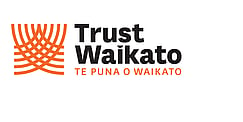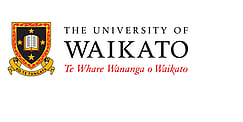WAIKATO BUSINESS PULSE: UPDATES FROM YOUR MPS
Stay in the know with Waikato Business Pulse, a monthly communications piece featuring insights from one or more Waikato MPs. This platform, from time to time, will also give you a chance to share your thoughts through surveys and polls, ensuring your voice is heard on issues that matter to our business community.
Keep connected, stay informed, and make your impact!
February 2026
MP Hon Scott Simpson
MP for Coromandel, Minister of Commerce & Consumer Affairs, Minister for ACC
As Commerce and Consumer Affairs Minister, I’m leading a portfolio balancing many business developments and consumer interests. No day is the same. At Parliament we’re hard at work fixing the basics and building New Zealand’s future, and this means a continued focus on improved competition. Healthy, competitive markets and a thriving and productive economy come hand-in-hand. We’re also working to make sure regulation suits the situation and isn’t holding businesses back. This Government has multiple initiatives underway to cut red tape and improve competition.
Competition reforms
This year we’ll usher in the biggest reforms to competition settings in two decades with major updates to the Commerce Act. These will stop market dominance by stealth and open the way for business collaborations that benefit consumers. They’ll deter creeping acquisitions by pausing a firm’s ability to roll up small competitors over time. The reforms will also stop killer acquisitions, a frequent problem in our current landscape. To enforce these changes, the Commerce Commission will have explicit powers to assess these sorts of mergers and the harm they pose to competition and consumers.
Our updates to the merger regime also recognise the many economic benefits mergers can deliver. Mergers provide an opportunity for businesses to scale up and increase efficiencies. Consumers benefit when these efficiencies are passed on to them in the form of lower prices, better products and improved services. However, we have heard that businesses are finding merger processes time-consuming and uncertain. Our changes will lead to quicker, clearer merger decisions within set timeframes, creating much more certainty for business. We’re also making sure the Commission has the right governance structure to remain an effective competition agency, which is in everyone’s best interests.
Open banking and electricity
In another new development of note, competition is also the driver behind the introduction of open banking and open electricity. Banking and electricity are the first sectors to be designated under the Customer and Product Data Act 2025, which gives customers greater control over how their own data is used and disclosed. Open banking took effect on 1 December 2025, with businesses able to apply to be ‘accredited requestors’ of customer data. Those companies will be able to offer new or improved services to consumers seeking more personalised and competitive payment services and better insights into their money. This is a major milestone towards a more dynamic, competitive banking sector, and one I’m really excited about.
Power prices are a hot topic in my Coromandel electorate and in the Beehive. Open electricity will give New Zealanders the power to act on their power bill concerns. It will give businesses and households secure access to their consumption data, and allow them to share their data securely with businesses who can help them find the best deal for their needs. We’re aiming to have open electricity underway by mid-2027.
While open banking and electricity are great news for customers, they’re also an opportunity for our innovators to disrupt traditional markets with new products and services. If you’re a fintech owner, I encourage you to consider the possibilities.
Consumer protection
Ensuring we have proportionate regulation that protects consumers is also a key focus for me. This year, we’ll pass legislation reforming financial services laws, giving New Zealanders better access to credit and strengthening dispute resolution services. And we’ll also progress legislation to beef up penalties for breaches of the Fair Trading Act, like misleading customers about pricing or promotions. Penalties for breaching most provisions will increase from a maximum of $600,000 to the highest of $5 million for businesses (or $1 million for individuals), three times the value of the commercial gain, or the value of the transactions.
This Government is serious about deterring unfair behaviour. However, it won’t be a worry for firms which are aware of and scrupulous of the law. Where there are breaches, the courts will still have discretion to impose penalties that are appropriate and proportionate to the situation and the business involved.
The New Zealand Anti-Scam Alliance launched last year will continue its coordinated work to protect New Zealanders from scams. As a collective, we’re committed to stamping out online financial scams, which cost Kiwis an estimated $265 million in January to October 2025 alone. The Alliance brings together banks, telecommunications providers, digital platforms, consumer groups and government agencies to tackle some important work, and so much has already been achieved. Combined efforts saw banks invest in shared fraud intelligence, telcos tightening the gates on scam and spam text messages and voice calls, digital platforms lifting the pace on removing fake content, and consumer groups ensuring those most at risk are front and centre. That’s why I am progressing targeted legislative changes to give industry the confidence to proactively disrupt scams.
Modernising company law
Also on our agenda for 2026 is modernising New Zealand’s company law to make it easier and safer to do business. Upcoming changes to the Companies Act are aimed at reducing compliance costs for legitimate businesses while strengthening the overall integrity of the corporate system. A key feature of the reforms is the introduction of a unique identifier for company directors. This identifier will make it easier to track an individual’s involvement across multiple companies. The goal is to improve transparency and help to deter poor business practices like phoenixing, where companies go bankrupt, leaving behind debts and unfulfilled orders, only for the same traders to re-enter the market under a new company name.
Together, these updates build a clearer and more resilient regulatory environment that supports fair competition and provides greater confidence for those who interact with New Zealand companies.
2026 is already a very busy year as the Government pushes ahead with these and other changes that will make a real difference to businesses, consumers and the economy. I look forward to engaging with you and wider regional representatives over the coming months.
Authorised by Scott Simpson, MP for Coromandel, Minister of Commerce & Consumer Affairs, Minister for ACC.

February 2026
MP Barbara Kuriger
MP for Taranaki-King Country
Welcome to 2026! It is going to be an extremely big year for the contest of ideas. Parliament will be is busy as ever leading up to the general election towards the later part of the year.
There are wide and varied challenges within my Taranaki King Country electorate which people approach me about in terms of either policy ideas or individual queries we need to solve. Often it is a request to navigate their issues with a government department.
The area of the Waikato which I represent starts in Mokau and finishes at the boundary of Ngaruawahia. The width covers Raglan, Kawhia and across to Taumarunui. For that reason, I call Waikato a diamond. I know that we have for many years focused on the golden triangle which has been incredibly important for connecting Auckland, Hamilton, and Tauranga. An excellent job has been done on roads such as the Waikato Expressway.
The reminder that I keep giving is there is a west side to the Waikato which includes beautiful areas as the fore mentioned Raglan and Kawhia but also the Waitomo caves and wonderful parts of the King Country that people enjoy so much when they visit. With plans underway for the Southern Links to exit the lower end of Hamilton into Waipa and King Country and in time the completion of the Mt Messenger bypass we will see a major advance in our piece of the diamond.
There will be better roads linking us to the wider Waikato and Taranaki. There are strong linkages between these parts of the country. Long term locals will be aware of Ferdinand and Mooloo as we have strongly contested rugby between the two provinces. We now have the Chiefs who cover both areas and include the King Country. Our extraordinarily strong dairy farming in these provinces provides outstanding economic value to New Zealand, supported by the sheep and beef farming for which the King Country is known.
Despite the tariffs imposed on countries around the world, including ours, we are continuing to have a primary production sector which is strong. The recent situation outlook has estimated the value at sixty-two billion dollars. This gives rural areas a current advantage, one which we must continue to strive for, however there are still many issues to be worked on in rural New Zealand including healthcare that that meets the needs of our populations no matter how far away from the centre they choose to love.
I continue to be impressed with our local health services which are run by extremely dedicated people in our community and provide accessibility locally so that patients only need to travel when there is an urgent need for a hospital or a specialist (and sometimes with the right support from health professionals, specialists can now be accessed through telehealth).
In my view, the big legislative change for 2026 will be the reform off the Resource Management Act. This act has seen numerous changes over 30 years to the point where it has become too onerous and unworkable in helping us achieve productivity in New Zealand. We used to be highly productive. Red tape now controls all aspects of our lives, and it is time to cut and untangle it. I hope those of you who hold an interest in the detail of these changes will be making submissions to the Environment Select Committee in the interests of ensuring we end up with an enduring piece of legislation.
While we continue to preserve our beautiful biodiversity, we must also ensure that our productivity, our infrastructure, and our housing continue to progress at a much faster rate than over recent years. I am looking forward to the progression of this bill through the House.
I wish you a healthy and successful year!
Authorised by Barbara Kuriger, MP Taranaki-King Country

December 2025
Tim van de Molen
MP for Waikato
Summer and the festive holiday season is upon us, bringing domestic and international tourists to the Mighty Waikato. We boast incredible attractions within the Waikato electorate including Hobbiton, the Te Aroha mineral spa, Wairere Falls, Morrinsville’s Herd of Cows, and the Waitakaruru Arboretum Sculpture Park. Wider across the rest of the Waikato region we are fortunate to have an even more varied range of attractions on our doorstep, including the spectacular Hamilton Gardens, Sanctuary Mountain, SkyCity, Fieldays, Waikato Museum, and many more.
Tourism is a vital sector for both our Waikato and national economy. Visitors spend money on accommodation, food and beverages, entertainment, transport, services, and retail goods. We have huge potential for tourism earnings with our existing attractions and the innovative entrepreneurs creating new attractions, hospitality services, and retail outlets throughout Waikato. As visitor numbers to Waikato increase, so do enterprises supporting these, such as businesses shuttling visitors to connection points on the Hauraki Rail Trail and tramping in the Kaimai ranges, and food vendors in Hamilton and our provincial towns. It's a highlight of my role as an MP to hear about, visit, and experience the various businesses supporting our Waikato tourism sector as I travel around my electorate and further around the region. We must maximise the opportunity tourism brings to our region and deliver exciting and memorable experiences to our visitors.
Our National-led Government is focused on enhancing the tourism sector to continue to grow the economy for the benefit of all New Zealanders. We know increased tourism creates more businesses, more jobs, and increased wages – putting more money into Kiwi’s pockets. Tourism is New Zealand’s second largest export earner, worth $17b per annum and the sector supports nearly 200,000 jobs across the country. Our Government is boosting the sector with our $40 million Events Attraction Package, commencing in 2026, to attract more large-scale international events to New Zealand and a $10 million Events Boost Fund to support existing events. Further, we’re funding $10 million with our Regional Tourism Boost Campaign to incentivise international visitors to visit and up to $10 million for tourism infrastructure upgrades including the ever-popular cycle trails, such as Te Awa River Ride and the Hauraki Rail Trail.
In the year to September 2025, New Zealand saw an increase in Australian visitors up 12 per cent (153,500) compared to September 2024. With direct flights between Australia and the Waikato again, we must capitalise on the ease of access and entice more Australian visitors to come here, to eat, play and stay.
This summer, when not busy in your own business or place of work, I hope you and your family, and any visitors you welcome to Waikato, take the opportunity to experience our local attractions and support the businesses which provide services to this vital sector.
I am working to grow tourism in our region with an official Great Walk on the Kaimai Range, from Wairere Falls to Mount Te Aroha. This would be massive for our region as the northern-most Great Walk, accessible 12 months of the year, within close proximity to two international airports and a cruise terminal, and over half of our domestic population within a two-hour drive. It’s spectacular walking in all seasons and the Wairere Falls are especially good viewing after a period of rainfall. With the numerous tracks linking to this walk, it can cater for day trips through to the full five-day experience. The opportunity is significant, and I welcome your support for the Kaimai Great Walk project.
Our National-led Government is continuing to invest in New Zealand’s future. That includes 17 new Roads of National Significance, including the extension of the Waikato Expressway to Piarere which is now consented, with construction commencing in 2026 (it would have been completed about now if it hadn’t been cancelled by the last government). Our longer term aim to extend the expressway to Tauranga is ambitious, but vital to deliver the prosperity, safety and social connection our regions deserve. I’m excited to see this stage progress for the benefit of everyone here in our region. The Southern Links project, linking SH3 to SH1 at Tamahere will be the next major transport connection for our region. Critical infrastructure like these investments are essential to deliver real value for families, commuters, and businesses. This is part of an infrastructure pipeline now worth $275 billion – delivering schools, hospitals, homes, and better-connected communities nationwide. Infrastructure such as road transport networks are essential to Waikato businesses freighting products and visiting clients, as well as to their employees commuting to workplaces. We must ensure arterial links throughout Waikato and further to Auckland and Tauranga are fit-for-purpose, safe, and foster efficient and productive commerce.
We’re pressing ahead with major reforms, including the complete replacement of the Resource Management Act, overhauling council structures to drive efficiency, and changes to building compliance. By changing the earthquake prone building system to focus on strengthening buildings that pose real risk, we’re reducing unnecessary costs for Waikato building owners and enabling our local buildings to be utilised for commercial and community benefit. We are prioritising our Going for Growth goals, ensuring the changes made will drive productivity. For many business owners, 2025 has been difficult. Our plan is working. For two years, we’ve been focused on fixing the basics and it’s paying off. The future is looking stronger, brighter, and full of opportunity. Together, we’re building a better country.
Do you live in the Waikato electorate? Enter your address here to check – www.vote.nz/maps/find-your-electorate/. Should you wish to share your views on an issue, or reach out for my support, please feel welcome to contact me on 0800 GET TIM (0800 438 846) or email Tim.vandeMolenMP@parliament.govt.nz. Wishing you, your business teams, and your family all the best for a wonderful festive season. I look forward to seeing you in 2026. – Tim van de Molen, MP for Waikato.
Authorised by Tim van de Molen, MP Waikato | Funded by Parliamentary Service.

















